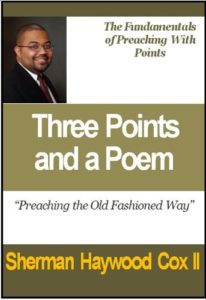A couple of weeks ago I had the privilege of conducting a preaching workshop at Lancaster Bible College. Our afternoon focused on creating saint-sanctifying, seeker-sensitive sermons: working towards a balanced approach. This post begins a short series on this important topic. Lord willing, I’ll be conducting this seminar in detail at LBC’s campus in Greenbelt, MD on the afternoon of April 3, 2014.
The topic is important because:
- Seeker-sensitive approaches continue to be very influential and many of us feel some measure of pressure to adopt effective methods.
- We are creatures of extremes which means some of us might be out of balance (too seeker focused or too saint focused). Or, to put it another way, maybe you have totally dismissed the seeker-senstive approach or you have bought into it whole-hog.
First, let me ask you to analyze your own approach and setting. Do your sermons and approach lean more towards being seeker-senstive or saint-sensitive? What percentage of your listeners on an average Sunday morning would declare to you that they are non-Christian (an important question as we search for balance)?
Alright, let’s look at areas of theology and ministry that are affected by this discussion.
Theology: What did Jesus mean when He said, “Anyone who has ears to hear, let him hear”? Does a certain kind of sermon create ears that can hear?
Hermeneutics: Is the standard approach to reaching seekers the best way to read the Bible? Is, for instance, the “five ways to manage your anger”-type sermon the best interpretation of Scripture selected to support such a sermon (yes, my selection of the word, “support,” is loaded).
Homiletics: Have we paid so much attention to the interest of our listeners that we have forgotten the listener’s spiritual condition and need for theology (as opposed to self-help [defined as moralistic improvement from Scripture apart from faith in Christ)?
That being said, it is not my intention in this series to debunk seeker-senstive, topical preaching. I do want to help bring some clarity to what it means to be seeker-senstive. I especially want to show from 1 Cor. 14:23-25 that we should be and can be more seeker-sensitive with an insider-directed message from God’s Word.
1 Cor. 14:24-25 gives us hope: “But if all prophesy, and an unbeliever or outsider enters, he is convicted by all, he is called to account by all, the secrets of his heart are disclosed, and so, falling on his face, he will worship God and declare that God is really among you.”
So, the only way to be seeker-sensitive is not creating an outsider-directed message and delivering it on Sunday morning. We know from v. 22 that these words were “for believers.” Be assured that your sermons aimed at the saints have the potential to reach the outsiders who join us each Sunday morning. More on how that happens in future posts.
Preach well for the sake of Christ’s reputation in the Church/world.
This post was originally published on March 24, 2014.









